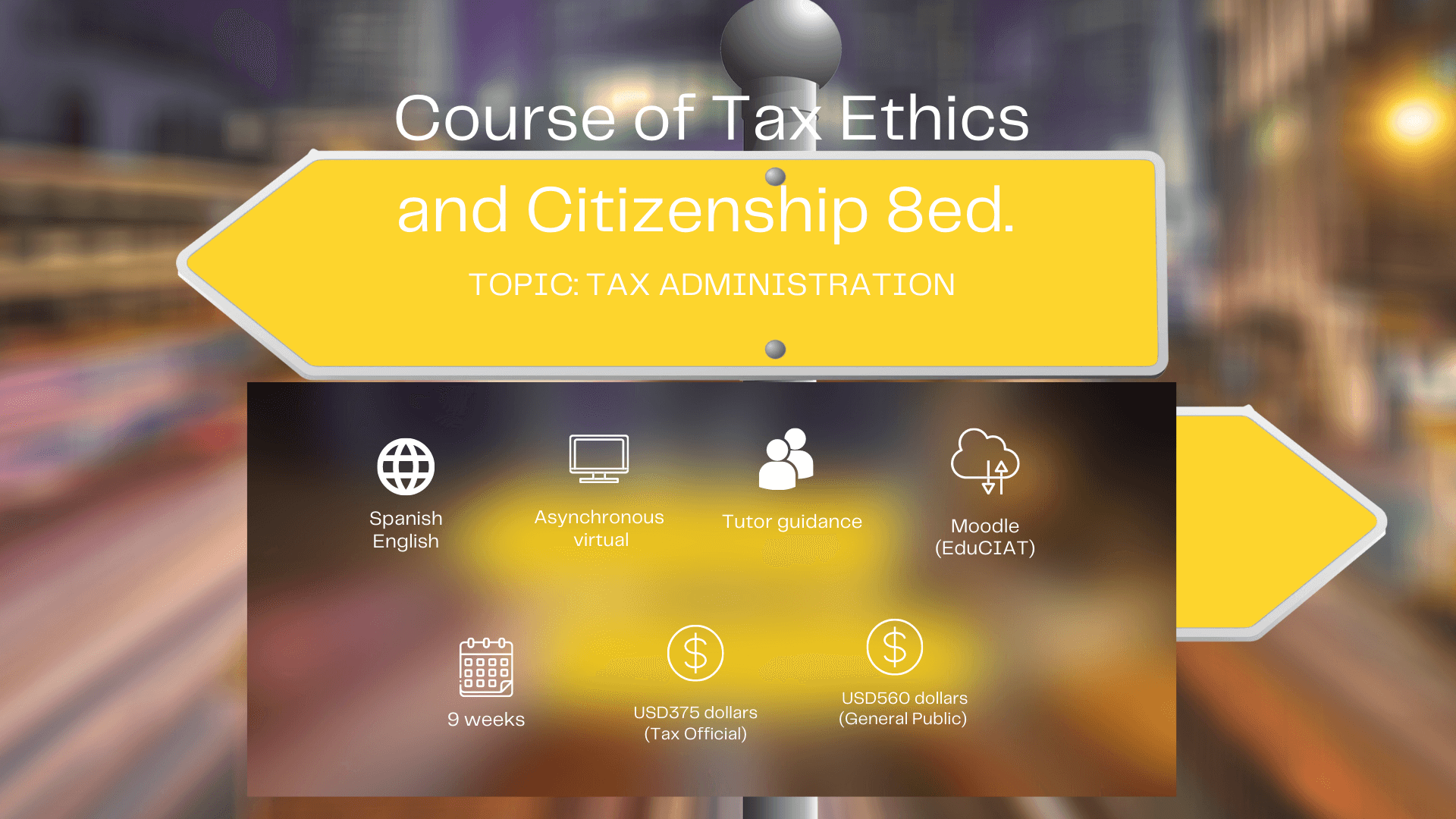
General Information
About the course
This course seeks to develop the capabilities, for elaborating proposals, tools and standards that may facilitate the promotion of public ethics, which initially requires understanding the basic criteria and principles that regulate it. The following topics will be developed during the course:
- Ethics and Corruption
- Ethics in Public Administration
- Ethics or Tax Morality
- The CIAT Works in the Promotion of Ethics in the Tax Administration
- The Construction of Tax Ethics: Tax Citizenship
Target audience
Officials of the tax administrations of the CIAT member countries, as well as the public in general.
Certification
The Training Coordination issues academic certificates of approval in digital format, which requires that participants have obtained the minimum passing grade of the course.
Registration Deadline
March 19, 2023
When
April 24, to June 25, 2023.
Frequently Asked Questions
What are the technical requirements for the CIAT courses?
The participants will need the following tools:
- Internet connection.
- Updated browser (Google Chrome, Mozilla Firefox or Safari).
- Permissions to receive external e-mails.
- Adobe Reader.
- Java.
- Zoom, the tool for synchronous sessions.
How many hours should I dedicate to the course?
For the individual activities, you should dedicate at least one hour a day to review and complete the material. In the case of collaborative work, it varies from one to two hours for the correct development of the work that you have to do, together with your classmates. Generally, we calculate a weekly dedication of 12 to 15 hours. In general, the activities have a closing date on Sundays at 23:55 hours in Panama.
What is a virtual classroom?
The virtual classroom is the space where you will find the study materials, homework, discussion forums, exams and complementary material; in addition, you communicate with the tutor and classmates takes through the option of messages and communication forums. Through these means, you have the possibility to ask questions, resolve your concerns and academic doubts. The tutor will be present throughout your learning and teaching process.
In case of problems, who should I contact?
In order to better assist you and answer your questions, please contact the following:
- For computer assistance: César Trejos (ctrejos@ciat.org) and Maureen Perez (mperez@ciat.org)
- For administrative assistance: Mónica Donoso (mdonoso@ciat.org) and Maureen Perez (mperez@ciat.org)
- For academic assistance: Your tutor (through the platform).
The virtual classroom is equipped with several communication tools to share ideas and information.
What are the steps to withdraw from the course?
Within the first 10 days students must write a message to the Tutor with copy to the Administration with their intention to postpone it; demonstrating that it is due to justified situations of force majeure. The withdrawn student will be entitled to the amount of the payment made and may use it to enroll in the next edition of the training program. He or she will start again from the first lesson.

Alejandro Juarez
ajuarez@ciat.org
Maureen Pérez Álvarez
mperez@ciat.org
César Trejos Canto
ctrejos@ciat.org
Mónica Donoso
mdonoso@ciat.org
More about CIAT
-
Importance of protecting the digital identity In Tax Administrations
-
Sixth Meeting of the OECD Global VAT Forum
-
CIAT participated in the “Caribbean Tax Outreach 2026”
-
TADAT: the diagnosis every tax administration needs
-
María Fernanda Inza
-
Artificial Intelligence Agents in the control of Transfer Pricing
-
Ignacio Granado Fernández de la Pradilla
-
Mario Pires
-
Revenue Report CIAT (RRC). First Semester – year 2025
-
Fernando Raúl Martín
